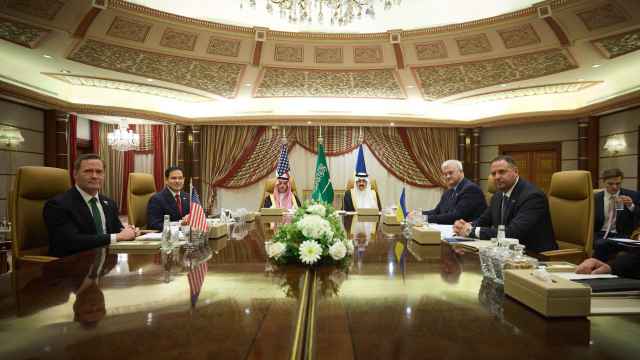MegaFon, the official mobile operator for the Winter Olympic Games in Sochi, said it has opened its 3G network to other cell companies, enabling their subscribers to use mobile Internet at the sporting venues during the Games.
The company has reached agreements with other major Russian mobile operators for "inter-operator guest roaming," and increased network bandwidth throughout the sporting venues at between 40 and 110 percent, MegaFon's official statement said Monday.
Normally, inter-operator roaming is used in emergencies when the network of one operator goes down, and its customers connect to another operator for emergency calls. In Sochi inter-operator roaming was enabled because MegaFon and Rostelecom were the only companies allowed to erect mobile towers around the new sporting facilities, effectively preventing other operators from providing coverage in those areas.
Initially the inter-operator roaming was meant to be automatic, but after a series of unsuccessful tests last month, a decision was made that foresaw subscribers having to switch manually. In order to make voice calls and use 3G Internet, users will have to dig into the settings of their mobile phones and select MegaFon from the menu of available networks.
4G LTE, however, will only be available to MegaFon's own customers, according to a journalist from Cnews.ru who had recently tested the system.
Switching to MegaFon from Beeline was easy, the journalist said, but then the phone stopped working when the phone returned to Beeline's coverage area. The phone had to be switched off and on again before it regained functionality.
MegaFon's press service said the company was aware of the problems. "The inter-operator's data roaming was switched on less then two weeks ago," MegaFon spokesman Maxim Motin said. "The problems that are discovered will be ironed out by the time the Games start," he added.
Contact the author at g.moukine@imedia.ru
A Message from The Moscow Times:
Dear readers,
We are facing unprecedented challenges. Russia's Prosecutor General's Office has designated The Moscow Times as an "undesirable" organization, criminalizing our work and putting our staff at risk of prosecution. This follows our earlier unjust labeling as a "foreign agent."
These actions are direct attempts to silence independent journalism in Russia. The authorities claim our work "discredits the decisions of the Russian leadership." We see things differently: we strive to provide accurate, unbiased reporting on Russia.
We, the journalists of The Moscow Times, refuse to be silenced. But to continue our work, we need your help.
Your support, no matter how small, makes a world of difference. If you can, please support us monthly starting from just $2. It's quick to set up, and every contribution makes a significant impact.
By supporting The Moscow Times, you're defending open, independent journalism in the face of repression. Thank you for standing with us.
Remind me later.





